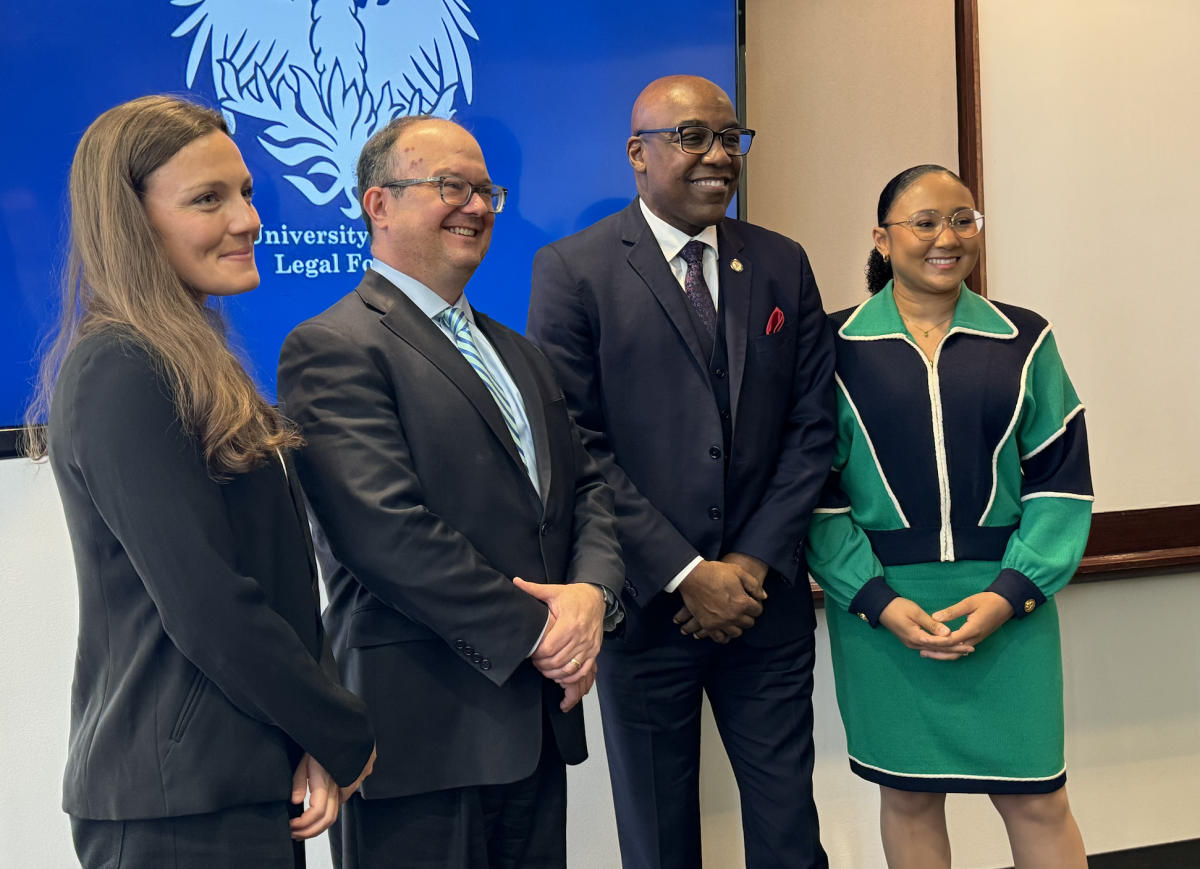In his first media interview as provost, Daniel Diermeier shared broad-strokes information about his office’s efforts to rethink the University of Chicago’s accounting, but declined to describe the particulars of what divisional budgets will look for the next few years.
Since starting in his role last July, Diermeier has made it a priority to standardize the University’s accounting models.
“GAAP” accounting principles, which are now being implemented across the board, were formerly used at the University level while the “modified cash basis” of accounting was used by some units. The differences between the two are somewhat technical, but the Provost said that using one set of principles is import because otherwise there can be “misalignment.”
The entire University needs to speak the same language, he said.
This accounting overhaul enables the provost to give each unit in the University a specified “budget target.” The provost’s office gives these budget targets to the deans and provides guidance around certain institutional priorities, but deans will have a lot of flexibility to come up with “creative” ways to meet their targets, he said.
“What th[is] allows us to do now is to set, for every unit, a target. If you think about this, why is this important? Well the first aspect that's important is because there's consistency and there's a sense of like knowing what's going on across the University,” he said. “And the second thing it does is it really enables the deans and the directors and so forth to think about the budget as enabling what their programmatic priorities are.”
One of the ways the University is trying to spark creativity, the Provost said, is by giving deans a three-year budget plan to encourage long-term planning. Without this advance notice of future budget targets, he said, it was more difficult for deans to make big long-term hiring decisions.
“We are asking more of our deans,” Diermeier said. “We are asking our deans to be more purposeful in how they think about their budget. We're asking them to take a long term perspective. And we’re asking them to be creative in terms of how I as a dean can accomplish particular programmatic objectives.”
Last summer, academic divisions had to come up with ways to meet 8-percent budget cuts that affected all of the University’s more than 50 units, according to a June 9, 2016 Inside HigherEd report. In response to the budget squeeze, at least one department had to lay off staff, which drew considerable backlash from faculty.
The provost did not deny that there are further reductions to division budgets coming, and he acknowledged that it would be “naive” not to adapt to “external factors” like reductions in federal grant money or changes to the Affordable Care Act. Still, Diermeier pushed back on use of the phrase “budget cuts.”
“I really want to get away from this cut mentality,” he said. He prefers the term “targets” because a unit could adjust to a budget reduction without slashing expenses if it could, for example, find a way to bring in more revenue.
“You want to unleash a little bit of a creative spirit here for people to identify new sources of collaboration, new sources of being able to identify additional resources. And in a large sense, the budget structure was intended to enable that,” he said. “We’re an ambitious place.”
Asked whether the University will be able to avoid layoffs in the face of possible budget reductions, the provost said that those kind of decisions would be left up to units.
“We don’t have any specific layoff targets or anything like that. What we have are budgetary targets, and the people who are managing their specific units are going to have to think—that’s what they are managing towards,” he said. “Layoffs are always tough, they are always difficult.”
He noted that people are always coming and going from the University, implying that attrition can negate or reduce the need the need for layoffs.
Diermeier declined to put a number on any possible budget reductions because he thinks there would be a “whole variety of potentially negative consequences” if that information were to get out.
Asked about the timeline of budgetary decisions, Diermeier said internal budget targets are generally finalized with deans around this time of the year in advance of the end of the University’s fiscal year, June 30.
Although Diermeier acknowledged that a public institution would have to release more information, he said that the University of Chicago only releases data in its annual report. “At a private institution, that’s just the way we like to do it.”
The provost did not talk about there being winners and losers with the accounting model changes, but noted that the key differences between the old and new accounting models relate to how donations are counted and how unit’s physical buildings and spaces are counted. Under the old model (“modified cash”), money spent on spaces was not as attached to unit budgets.
Diermeier repeatedly stressed the advantages to taking a more hands-off approach with division budget management, but he also said that the Provost has to maintain some level involvement to advance its priorities. Asked for an example of a University priority, Diermeier cited the University’s goal of increasing underrepresented minority faculty.
The provost said that these priorities are primarily communicated through conversation at the programmatic level, though he said it's also important to make sure units are financially incentives to work toward the University’s objectives.
“You have to have the structures, and the incentive systems have to align with what you want to do, but it all comes down to having conversations and discussions of what the priorities are and then you build the structures around that.”
His office has not undertaken a full reevaluation of how much money is going to each division—his focus has been on standardizing accounting models.
“In the future, you could imagine that one could do that, but for now we feel pretty good about what we’re doing, where we’re going,” he said. “We basically said “we’re not going to change [unit allocations].”… We’re keeping our priorities in place right now and that determines where the targets are.”
Feng Ye contributed reporting.







